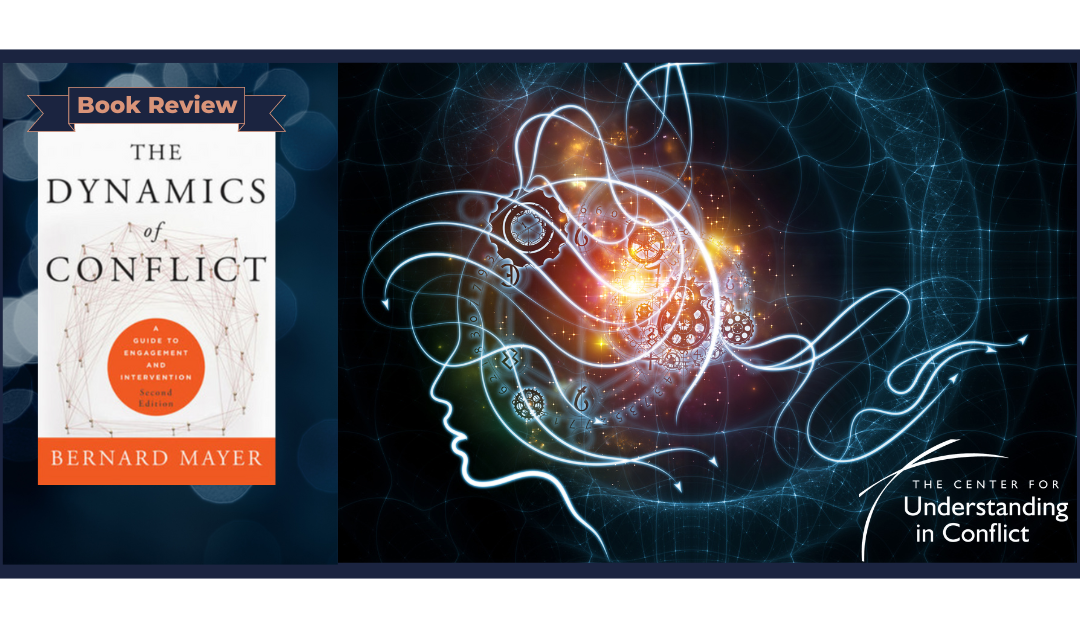The Dynamics of Conflict: A Guide to Engagement and Intervention by Bernard S. Mayer is a comprehensive and practical guide for conflict resolution and mediation professionals. Mayer has structured the book in a way that is easy to follow and provides clear explanations of complex concepts related to conflict dynamics, negotiation, and mediation.
The Dynamics of Conflict’s sections each focus on a different aspect of conflict engagement and intervention, with the first providing an overview of conflict dynamics. Mayer emphasizes the importance of understanding the underlying causes of conflict and provides a framework for analyzing conflict dynamics. He also discusses the role of emotions and the importance of addressing emotional needs in conflict resolution.
The second section of the book focuses on the process of engagement. Mayer guides building trust and rapport with the parties involved in the conflict and emphasizes the importance of active listening, empathy, and effective communication. He also discusses the role of culture in conflict and provides strategies for working with parties from diverse cultural backgrounds. The final section of the book focuses on intervention techniques. Mayer offers practical guidance on negotiation and mediation techniques, including different approaches to negotiation and mediation, the role of power dynamics in negotiation and mediation, and strategies for promoting fairness and equity in the process.
One of the strengths of this book is that it emphasizes the importance of understanding the underlying causes of conflict. Mayer provides numerous examples and case studies to illustrate key concepts and techniques throughout the book while providing a framework for analyzing the root causes of conflict, which helps mediators to develop a deeper understanding of parties’ perspectives and interests. This approach enables mediators to design effective interventions that address the underlying issues and promote sustainable solutions.
Another strength of the book is its focus on the process of engagement. Mayer provides valuable insights into how mediators can build trust and rapport with the parties involved in the conflict. He emphasizes the importance of active listening, empathy, and effective communication techniques to facilitate dialogue and promote mutual understanding. Mayer outlines different approaches to negotiation and mediation and provides examples of when each method might be most effective. He also discusses the role of power dynamics in negotiation and mediation and how mediators can navigate power imbalances to promote fairness and equity. The book also provides practical guidance on negotiation and mediation techniques.
The Dynamics of Conflict: A Guide to Engagement and Intervention is an essential resource for conflict resolution and mediation professionals. It provides a comprehensive framework for analyzing conflict dynamics, engaging with parties, and designing effective interventions. The book is also accessible to non-professionals interested in learning more about conflict resolution and mediation.

